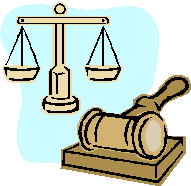U.S. Airways Says Sabre’s Practices Are "Anticompetitive"
And "Anticonsumer"
US Airways has filed a federal civil antitrust lawsuit in the
Southern District of New York against Sabre Holdings Corp. to halt
anticompetitive and anticonsumer practices, as well as recover
monetary damages.

According to the complaint, Sabre, which is a dominant
distributor of airline fares and content to travel agents, has
engaged in a pattern of exclusionary conduct to shut out
competition, protect its monopoly pricing power, and maintain its
technologically-obsolete business model. US Airways contends that
Sabre has wielded its significant market power and control through
exclusionary commitments from travel agents and other Global
Distribution Systems (GDSs), as well as through anticompetitive
requirements placed on US Airways and other airlines in order to
sell their tickets. All of these actions by Sabre hurt consumers
through higher prices, reduced innovation and fewer choices.
US Airways claims Sabre is the largest GDS in the United States
and exercises enormous market power over airlines, including US
Airways. Over 35 percent of US Airways’ revenue is booked
through Sabre and Sabre affiliated travel agents. Sabre structures
the distribution model so that travel agents, whether they are a
traditional travel agency or one of the large online travel
agencies that many consumers use directly on the Internet, are
typically forced to rely on a single GDS to book airline tickets on
behalf of their customers. According to the complaint, Sabre
imposes significant economic penalties on travel agents relating to
bookings not made using Sabre. If Sabre excluded US Airways from
its offerings to its travel agents, those agents could no longer
book US Airways tickets through Sabre. US Airways would not be able
to survive the subsequent loss of revenue. Given this
disproportionate market control, US Airways is forced to accept
Sabre’s monopolistic practices.
The lawsuit, filed Thursday, follows after the recent execution
of a new distribution agreement between Sabre and US Airways, which
was reached in late February 2011. During negotiations with Sabre,
US Airways made it clear to Sabre that it sought a new contract
without exclusionary restrictions that protect Sabre from
competition. However, Sabre threatened to shut off access to US
Airways if the new agreement did not include these anticompetitive
restrictions. According to the complaint, US Airways was forced to
acquiesce to Sabre’s “my way or the highway”
demands as a part of any new deal.
The complaint also alleges that Sabre has been aggressive in
suppressing the ability of travel agents to book tickets directly
with airlines using so-called "direct connections.”
US Airways fully expects that its lawsuit will not disrupt the
display or distribution of US Airways tickets on Sabre during the
litigation.

The airline contends that Sabre’s fee structure for travel
agents further lessens competition in airline ticket distribution.
The complaint alleges that Sabre increases barriers for competition
by providing a portion of the fees it receives from airlines to
travel agents. As detailed in the complaint, in order to receive
the highest financial incentive, Sabre effectively forces Sabre
travel agents to work with Sabre, which prevents the travel agents
from working more closely and collaboratively with other
distribution alternatives. Sabre has further ingrained itself in
other aspects of travel agencies, such as fulfillment and billing
functions, which creates further barriers for the growth of better,
more cost-effective distribution alternatives. US Airways pays
Sabre so that Sabre affiliated travel agents can book tickets on US
Airways. Across the board there have been advances in technology
and communications, and a corresponding decline in those costs, yet
the cost of doing business with Sabre remains artificially
inflated.
“The airline industry and other technology services
providers have become more efficient, yet Sabre’s conduct has
enabled it to charge inflated prices with outdated technology that
was developed before the Internet existed. Lower-cost, more
technologically-advanced alternatives and innovative fare products
are being shut out by Sabre’s actions,” said US Airways
President Scott Kirby.
Finally, the airline holds that Sabre’s conduct harms it
and consumers in several ways, including increasing pricing for
airlines and travelers, stunting the growth of more cost-effective
and technologically-advanced alternatives, and reducing choice by
obstructing or delaying the distribution of innovative fare
products. For example, prior to Sabre using its monopoly power to
enforce full content agreements, US Airways frequently offered more
favorable web only and other promotional fares at discounted levels
through select distribution channels. US Airways alleges that
Sabre's full content requirements effectively have eliminated US
Airways’ ability to offer these types of fares and resulted
in increased ticket prices for consumers. As stated in the
complaint, Sabre, for some time, also threatened to block US
Airways’ Choice Seats program from being offered through
other distribution channels. US Airways contends that Sabre’s
conduct and technological limitations effectively have delayed the
introduction of products like US Airways’ Choice Seats
program on Sabre.
“US Airways wants to be able to widely distribute its
products and services to consumers in a cost-effective and
efficient way, but Sabre continues to erect roadblocks to this
goal. US Airways and travelers would see enormous benefits if Sabre
had to compete on a level playing field,” said Kirby.
Both the Antitrust Division of the United States Department of
Justice and the United States Department of Transportation have, in
the past, recognized that Sabre exercises significant market power
over airlines like US Airways.
 ANN's Daily Aero-Linx (04.13.24)
ANN's Daily Aero-Linx (04.13.24) ANN's Daily Aero-Term (04.13.24): Beyond Visual Line Of Sight (BVLOS)
ANN's Daily Aero-Term (04.13.24): Beyond Visual Line Of Sight (BVLOS) Airborne 04.09.24: SnF24!, Piper-DeltaHawk!, Fisher Update, Junkers
Airborne 04.09.24: SnF24!, Piper-DeltaHawk!, Fisher Update, Junkers Aero-News: Quote of the Day (04.14.24)
Aero-News: Quote of the Day (04.14.24) ANN's Daily Aero-Term (04.14.24): Maximum Authorized Altitude
ANN's Daily Aero-Term (04.14.24): Maximum Authorized Altitude




